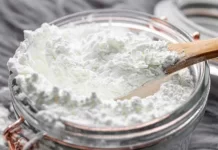With the falling of their baby teeth, development of new teeth, their love for sweets and chocolates, children are prone to develop tooth decay and cavities. It is one of the most common dental problems seen in children, especially when their oral hygiene routine is not taken seriously. Once developed, if they are not treated appropriately, this might lead to the kids developing sensitivity and losing their baby teeth prematurely. It affects their smile and appearance and could contribute to the misalignment of their growing new teeth. Visiting a dentist might be daunting to a child. Still, the best dentist in Chatswood ensures a positive and warm environment to make the child feel comfortable and undergo the procedures.
Signs of Tooth Decay
Decay does not always show or cause immense pain. Therefore, parents need to keep a lookout for these signs in children to identify the possible development.
· Lethargy and crying
· Dark and white spots on teeth
· Avoiding hard food
· Sensitivity to cold drinks and food
· Swelling of the mouth
How Can we Reduce the Risk of Children Developing Cavities?
1) Begin Dental Home Care at an Early Stage
Parents must begin a child’s oral health care routine even before he/she starts growing their teeth. After the child drinks or eats, the parent must wipe their gums with a damp cloth and clean the food residue. As their teeth grow, the parents can clean the pearly whites using a child brush after every meal or twice a day.
2) Visit the Dentist Periodically
Regular visits to a dentist are crucial as regular visits to a pediatrician are essential to maintain the child’s health. Families can visit the best dentist in Chatswood for regular check-ups to help identify early signs of decay or other abnormality and have them treated right away.
3) Monitor the Child’s Food and Sugar Intake
One of the essential aspects of oral health is nutrition. Research shows that children consuming food with high amounts of sugar, acid, chocolates, and sticky food have a higher risk of developing decay. These food items might leave a residue in the mouth, allowing damaging microbes to fester in the mouth and cause cavities. A balanced and nutritional diet with fruits, vegetables and minimum junk food is the best way to protect children’s teeth.
4) Do not Put the Child to Bed with Food
Many children and toddlers might have the habit of falling asleep as they eat or drink bottled milk. Having food in the mouth allows bacteria to accumulate rapidly and attack the teeth, resulting in the rampant development of cavities. Therefore, parents must ensure that children don’t fall asleep with food in their mouths. If the child cannot sleep without a bottle, they need to make sure it is just water.
5) Educate the Child About Oral Care
Educating the children about oral health and hygiene could go a long way. Creating awareness in children about teeth decay and the need for a healthy breath and smile can encourage them to follow the routine regularly and develop good oral habits.
If the child develops dental cavities at all, there are ways to treat them and restore their teeth into their healthy form. The procedures depend on the stage and the severity of the issue. Dental fillings and dental crowns are the most common procedures done to save the tooth.
Visit a dentist in Chatswood to get clarity on your child’s oral health.

































